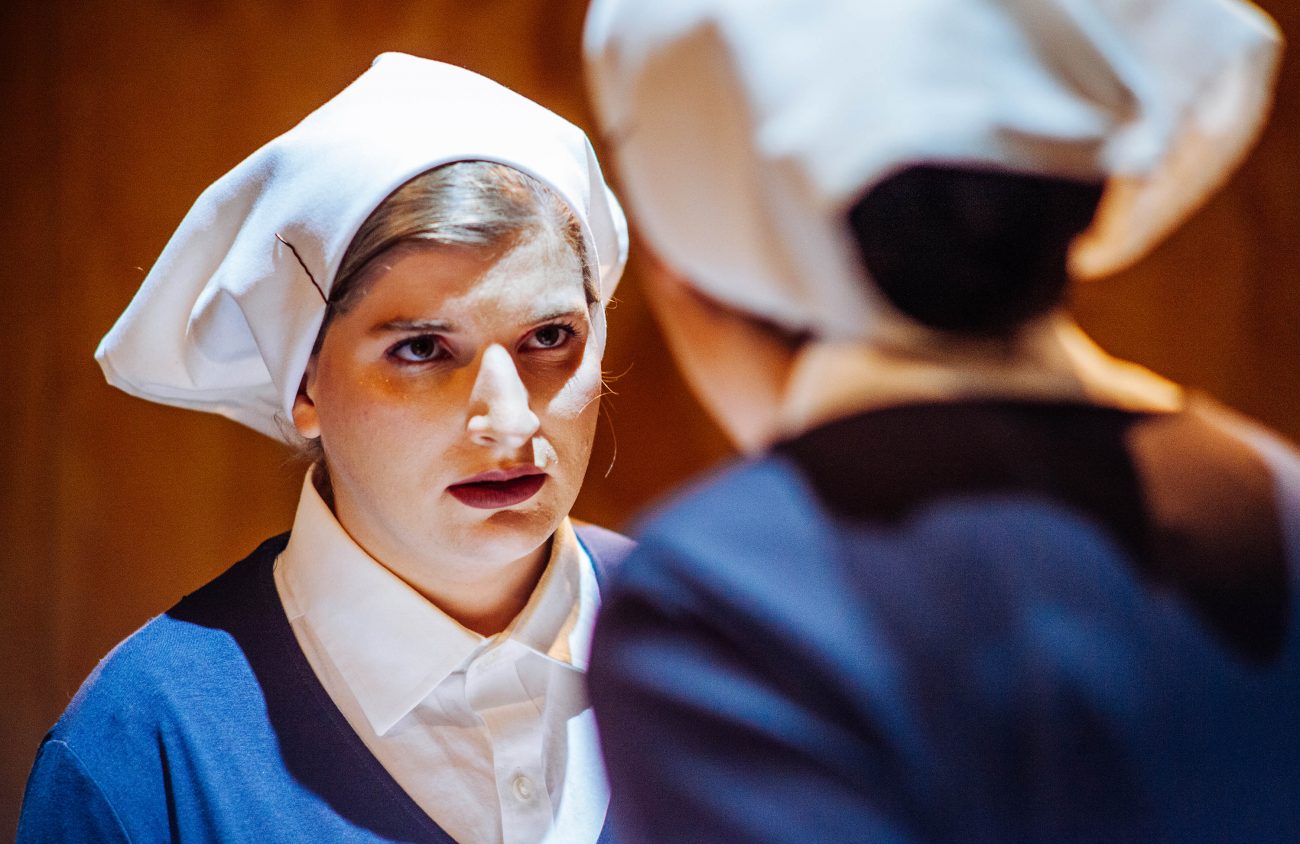Playwright Timothy Andrew McIntosh’s latest drama is a strange beast indeed. Part speculative fiction, part old-fashioned detective story, the play runs its course like a murder mystery whose unlikely forebears are the theological inquisitions of Dostoevsky, Calvin and Mary Shelley.
In Sister of the Dark Heart, opening this Friday in the Whiteaker, a nun cloistered in a convent swaps hearts (literally, through transplant) with a troubled woman (read: sinner) in an attempt to purify her, with unexpected results for both women. Further complicating matters is the fact that, before surgery, the destitute woman’s young son was deliberately drowned, and now a detective has shown up at the convent to investigate the case.
McIntosh, who recently left his position as an instructor at Gutenberg College to become a full-time writer, says the play grapples, in part, with the idea of memory and how “memories might be stored on more than a cognitive level.”
In other words, the Cartesian duality of mind/body is complicated in the play, as identity itself becomes a fluid substance that, just perhaps, might be transferred — an intriguing metaphor for the digital age. “I have just always thought of the soul as the inner self tied to our physical selves,” McIntosh says. “That’s just a lot more murky for me now.”
McIntosh directed a staged reading of the play earlier this month at Drawn, a creative agency in Eugene’s Whiteaker neighborhood; the play will debut as a fully staged work there this week. Even through the bare bones of a practice run, Sister revealed its tensions, as the play’s four characters — Abbess Holmes (Lori Stein), Sister Clara (Hazel Rose Gibson), Sister Ava (Kelsey Boulton) and the dogged Detective Slater (Jordan Kerbs) — engage in a bizarre and complicated game of cat-and-mouse.
The play’s atmosphere is claustrophobic, anxious and dialogue-fueled, like a thriller by David Mamet. “It was written to be in real time in one location as a moral dilemma that can only be solved by these women in these four walls,” McIntosh explains, adding that the physical reality of the Drawn office, with it’s “nooks and crannies,” helps amplify the immediacy of the play.
The production, he says, is meant to be immersive but not invasive — a kind of felt experience in which the audience is intimate and up-close, witnessing the action as it unfolds around them. “There’s a way in which you can break the fourth wall without making the audience feel like they’re given a responsibility they didn’t sign up for,” McIntosh says.
Sister of the Dark Heart, an original play by Timothy Andrew McIntosh, runs 7:30 pm Fridays and Saturdays, Feb. 23 through March 3, at Drawn in the Bard Building, 545 Monroe Street; $50 (includes dinner), tickets at sisterofthedarkheart.com.
